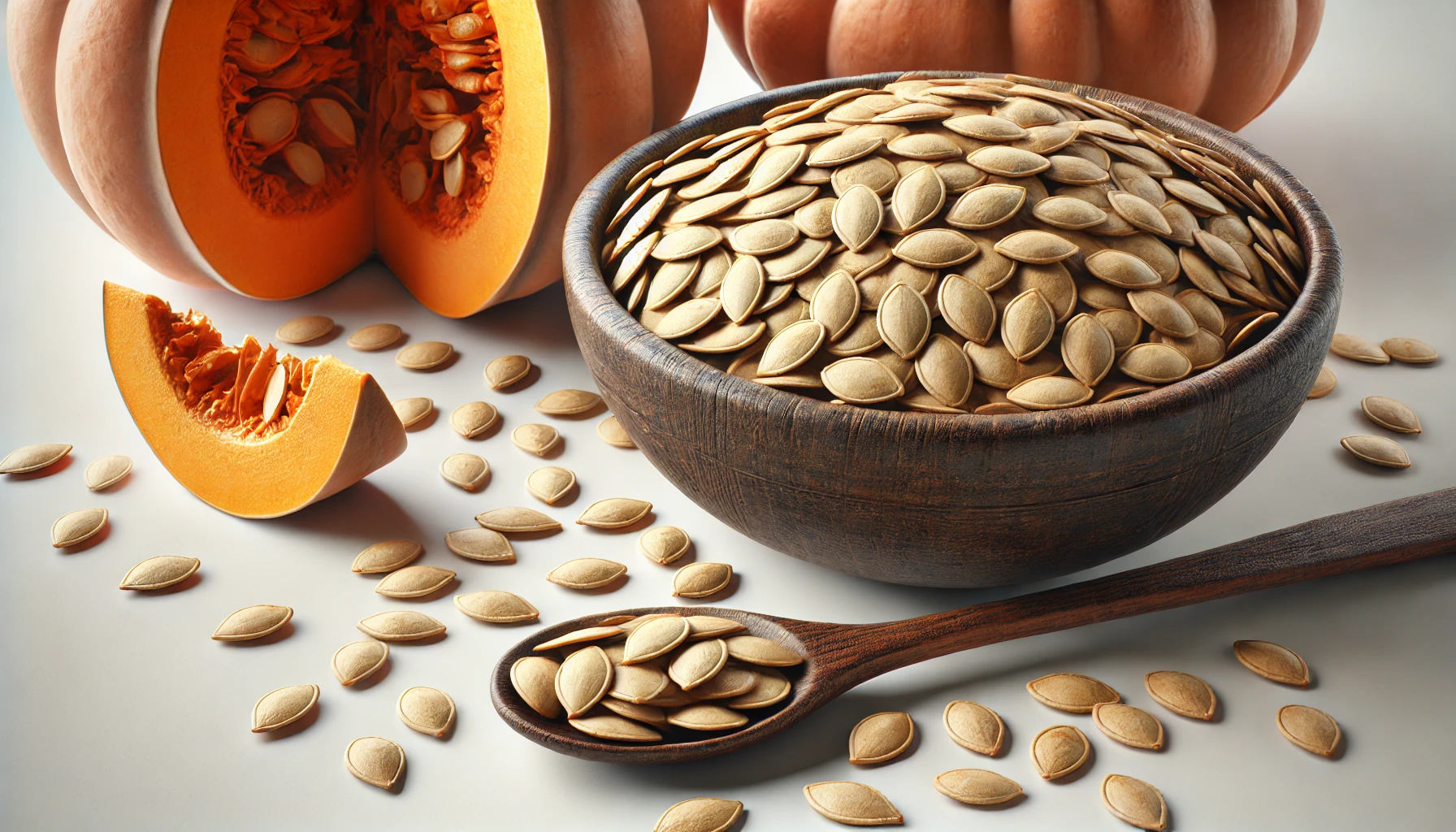Check out this answer from Consensus:
Pumpkin seeds are a highly nutritious and versatile food that offers numerous health benefits. Their rich content of essential nutrients, antioxidants, and bioactive compounds makes them a valuable addition to any diet. From improving cardiovascular and prostate health to reducing the risk of certain cancers, pumpkin seeds have proven to be a powerful functional food. Incorporating pumpkin seeds into your diet can help you reap these health benefits and promote overall well-being.
Pumpkin seeds, also known as pepitas, are small, flat, green seeds that are packed with nutrients and have been used for centuries in various cultures for their health benefits. These seeds are derived from pumpkins, which belong to the Cucurbitaceae family. Recent research has highlighted the numerous health benefits and nutritional value of pumpkin seeds, making them a popular choice for those looking to improve their diet and overall health.
Nutritional Value
Pumpkin seeds are a rich source of essential nutrients, including proteins, carbohydrates, monounsaturated and polyunsaturated fatty acids, carotenoids, tocopherols, and various phytochemicals1 3. They are particularly high in omega-3 and omega-6 fatty acids, fiber, antioxidants, vitamins, and minerals such as magnesium, zinc, and manganese4. These nutrients contribute to the seeds’ numerous health benefits, making them a valuable addition to any diet.
Health Benefits
Antioxidant Properties
Pumpkin seeds are known for their high antioxidant content, which helps protect the body from harmful free radicals and reduce inflammation. The presence of phenolic compounds in pumpkin seed extracts has been shown to provide significant radical scavenging activity5. This antioxidant activity is crucial in preventing chronic diseases and promoting overall health.
Cardiovascular Health
The fatty acids, sterols, and other bioactive compounds in pumpkin seeds have been linked to improved cardiovascular health. Studies have shown that consuming pumpkin seeds can help lower cholesterol levels, reduce the risk of heart attack and stroke, and improve heart health4 6. The presence of phytoestrogens in pumpkin seeds also contributes to their cardioprotective effects6.
Prostate Health
Pumpkin seeds have long been used in traditional medicine to treat prostate problems. Research has shown that the seeds’ phytoestrogens and unsaturated fatty acids can help manage conditions such as benign prostatic hyperplasia (BPH) and overactive bladder9. These compounds work by inhibiting 5-α-reductase, reducing inflammation, and scavenging free radicals, which can alleviate symptoms and improve prostate health.
Anti-Cancer Properties
Diets rich in pumpkin seeds have been associated with a reduced risk of certain cancers, including stomach, breast, lung, prostate, and colon cancers4. The lignans in pumpkin seeds, such as secoisolariciresinol and lariciresinol, have estrogenic-like effects that may help prevent hormone-dependent tumors10. Additionally, the seeds’ antioxidant properties contribute to their anti-cancer effects by protecting cells from oxidative damage.
Other Health Benefits
Pumpkin seeds offer a range of other health benefits, including improved spermatogenesis, wound healing, antimicrobial, anti-inflammatory, and anti-ulcerative properties1. They are also known to help manage lifestyle disorders such as diabetes, cardiovascular diseases, and depression3. The seeds’ high nutrient content makes them a valuable addition to any diet, promoting overall health and well-being.
